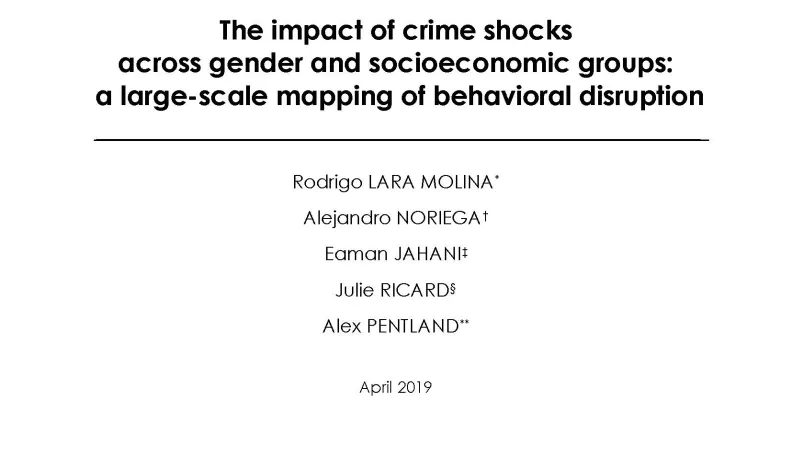Share the page
The impact of crime shocks across gender and socioeconomic groups: a large-scale mapping of behavioral disruption
Published on

In recent decades the world has seen a simultaneous trend towards becoming more peaceful overall, but also towards higher homicide rates surging in focal regions in the developing world. Although abundant research exists on the nature and sociology of crime, few studies look into the damaging impact of crime and violence on the daily lives of affected communities. The present study proposes the use of societal-scale behavioral data—card transactions’ metadata—to elicit such impact. On the crime side, we use detailed homicide records for an entire middle-income country to identify salient crime shocks at the local level. On the behavioral side, we use debit card transaction volumes throughout the country to extract behavioral indices. We show that crime shocks have a substantial effect on communities’ consumption patterns. Moreover, we show that the effects of crime shocks distribute differently across population subgroups defined by gender and socioeconomic status— e.g., with reductions of up to 7% in females’ average volume of transactions—potentially exacerbating social inequalities. We conclude this work with policy recommendations on the use of ‘big data’ sources to monitor and help.
Useful Information
-
Authors
-
Rodrigo LARA MOLINA, Alejandro NORIEGA, Eaman JAHANI, Julie RICARD, Alex PENTLAND
-
Coordinators
-
Edition
-
103
-
Page number
-
19
-
ISSN
-
2492 - 2846
-
Collection
-
Research Papers
